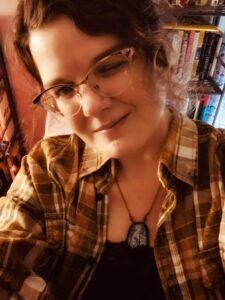“ But our present discussion, on the other hand, shows that the power to learn is present in everyone’s soul and that the instrument with which each learns is like an eye that cannot be turned around from darkness to light without turning the whole body. This instrument cannot be turned around from that which is coming into being without turning the whole soul until it is able to study that which is and the brightest thing that is, namely, the one we call the good. Isn’t that right?” ( Allegoryo of the Cave, 9). There’s a difference between being close-minded and allowing yourself to gain greater knowledge compared to being educated and lacking knowledge. In this moment, I’m able to visualize a group of adults that have sit in one spot with their body chained to one another. These adults are prohibited from making any movements and they are only able to see what is directly infront of them, which is controlled. The setting of the allegory takes place in a dark cave with minimal amount of sunlight peaking through the holes of the cave. The group of individuals are chained from their heads to their feet. They are stained next to one another with little to no movement, similar to robots. Plato demonstrates the countless of ways that one may react when being exposed to something bigger, something more than they have known to be mankind. One may escape and run away, one may return to the cave to share his knowledge to the others. If one may return to the cave to communicate with the others, the others may assume he’s a liar or others may kill him for going against their beliefs. I believe that this allegory is an educational narrative as it represents those that are strict to their own beliefs and what they have experienced. Plato had represented the world inside the cave and the possibilities of the world outside of the cave. As those stuck in the cave revolve around their 5 senses: what they’re able to see, hear, think, smell, and taste. The bigger meaning can imply the way humans tend to base their beliefs on their five senses and their experience.
About
Professor: Jessica Penner
Email: jpenner@citytech.cuny.edu
Class Meetings & Times: Mondays & Wednesdays, 2-3:40 PM, in Namm 519
Office Hours: Tuesdays and Thursdays, 12 – 1 PM. I’ll be available through Zoom and will send an invitation via email that you should keep all semester. Try to join my meeting at the start of the hour, not at the end—since I may be talking to other students or have another appointment after the hour is up. If those times don’t work with your schedule, we can schedule a different time. This means you’ll have to schedule an appointment in advance via email. I suggest you have multiple times in mind, since your schedule may not mesh with mine!
Course Description: A course in effective essay writing and basic research techniques including use of the library. Demanding readings assigned for classroom discussion and as a basis for essay writing.
Sharing
Logged-in faculty members can clone this course. Learn More!
Search This Course
Find Library Materials
Library Information
Ursula C. Schwerin Library
New York City College of Technology, C.U.N.Y
300 Jay Street, Library Building - 4th Floor
Acknowledgments
This course is based on the following course(s):





Leave a Reply